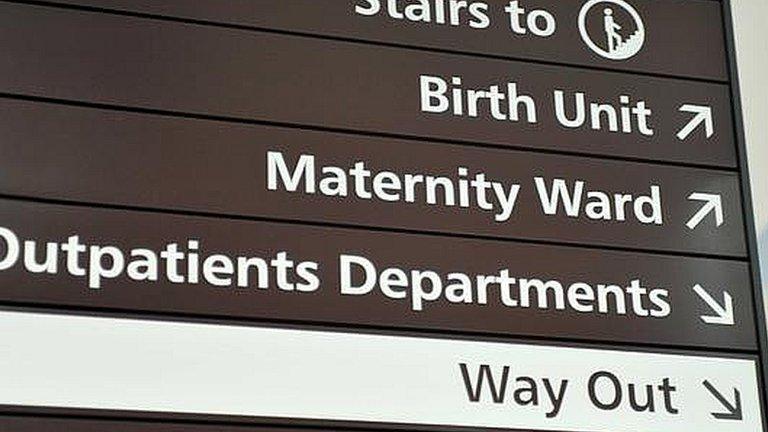Berwick Infirmary excavation unearths medieval well
- Published
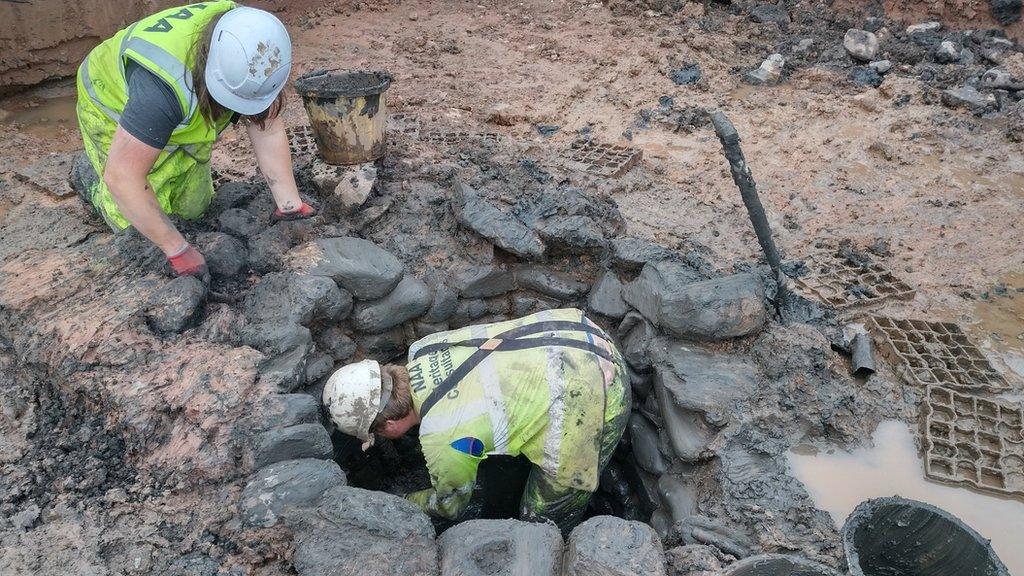
It is thought the 19th Century well belonged to the former poor house immediately opposite the hospital on Brucegate
A medieval well has been unearthed by archaeologists during building work for a new hospital in Northumberland.
A number of near-complete shoes and large shards of pottery were found in the well in Berwick, which dates back to the late 15th or 16th Century.
A second water hole, from the 1820s, was also discovered during excavations at the town's 19th Century infirmary.
Ancient walls, pottery and fish bones, believed to date back 900 years, were found at the site in April.
It is hoped the discoveries from the archaeological dig will shed light on the history of the town.
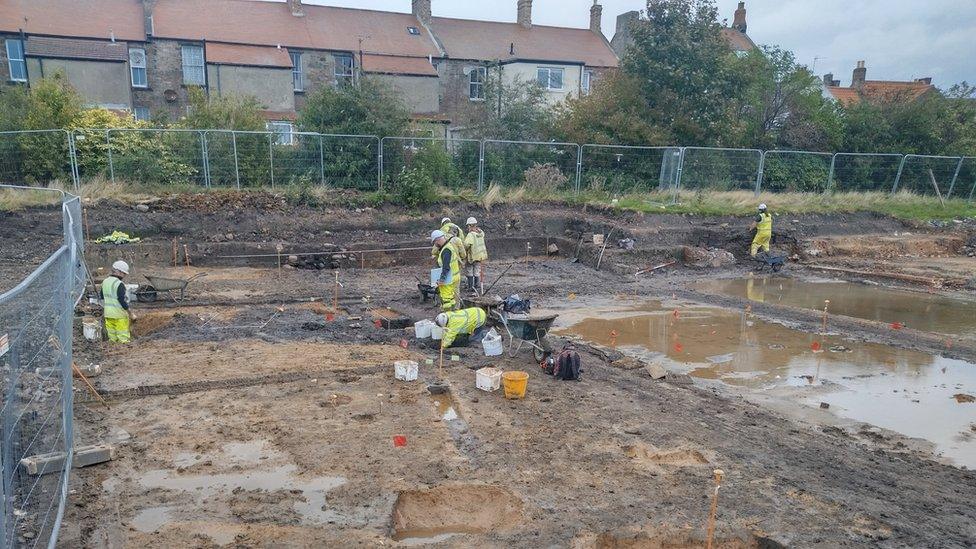
The excavation, by Northern Archaeological Associates, has now moved onto another section of the site
During demolition work on the older parts of the infirmary, there was a temporary suspension of overnight stays on the ward for safety. Inpatients are again being welcomed onto the ward.
The hospital, which was built in 1874, is within the town walls which were constructed in about 1296.
The new Berwick Infirmary, which will replace the current one, will cost about £30m and is due to open in 2022.
The trust had originally planned to build a new hospital and leisure centre at a different site but scrapped the move after public opposition.

Follow BBC North East & Cumbria on Twitter, external, Facebook, external and Instagram, external. Send your story ideas to northeastandcumbria@bbc.co.uk, external.
Related topics
- Published3 April 2021
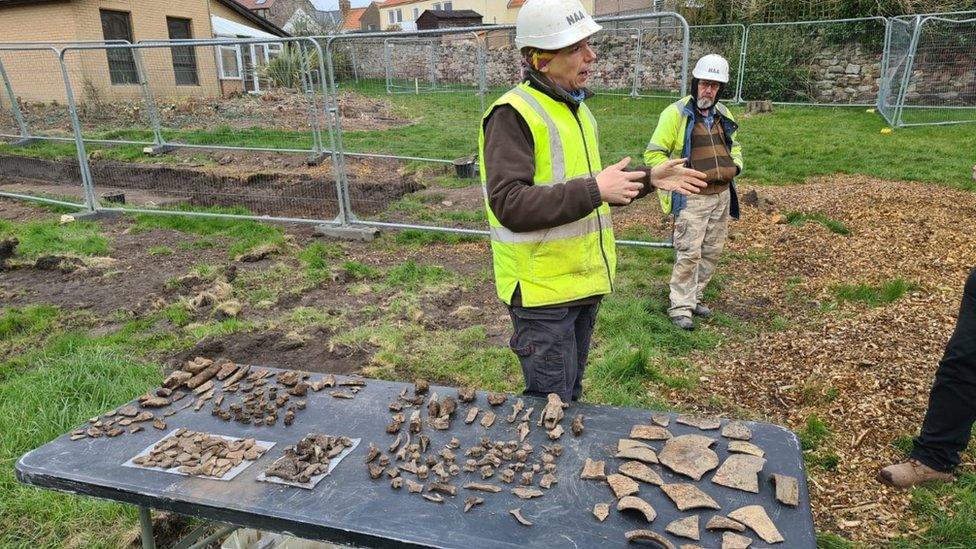
- Published2 December 2020
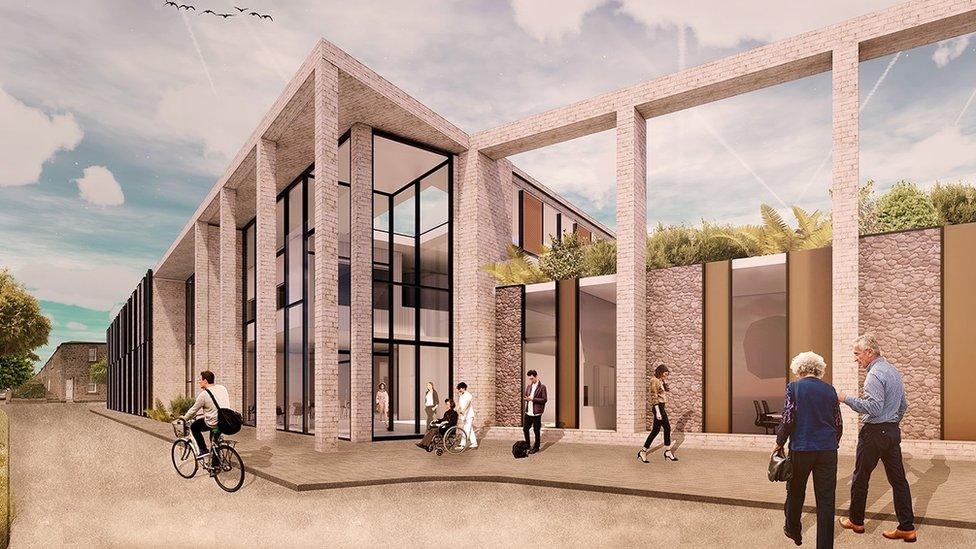
- Published9 May 2019
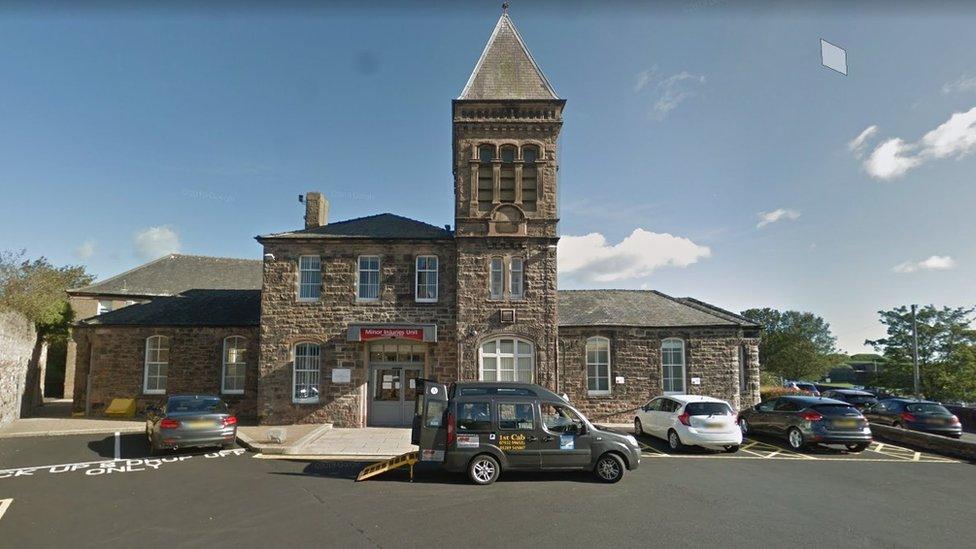
- Published4 October 2018
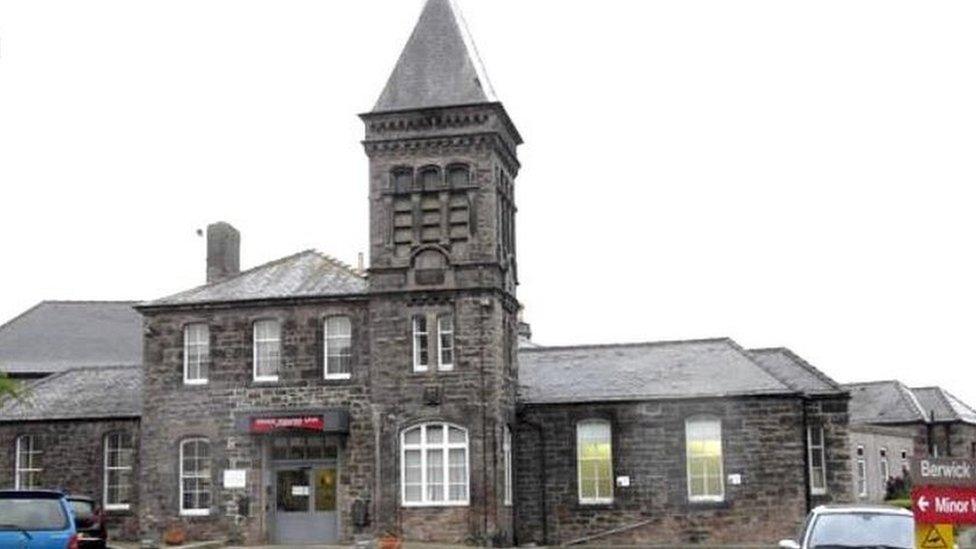
- Published31 July 2012
